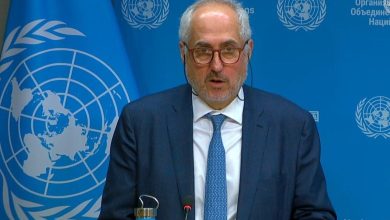
While terrorism has a history as long as humanity has existed on Earth, and in recent decades, with the advancement of technology, terrorism has become a serious threat to the world, only 8 years have passed since a day was designated to commemorate the victims of terrorism.
August 21 was designated as the International Day of Commemoration and Tribute to Victims of Terrorism by the United Nations General Assembly in 2017, based on resolution 72/165. According to the announcement of the United Nations General Assembly, the focus of this international day is to commemorate, remember and pay tribute to victims of terrorism by expressing solidarity and promoting and protecting their human rights and fundamental freedoms.
What is terrorism?
The phenomenon of terrorism is one of the serious crises of international law, because it endangers international peace and security.
Despite the global confrontation with this crisis, there is still no fully agreed-upon definition of terrorism, one of the reasons for this is the use of this tool by some global actors, especially Western countries, to achieve their illegitimate goals.
At the same time, this has given terrorism the opportunity and the necessary context to grow and develop, and instead of being eradicated, it has become more deadly than ever in various forms.
Individual terrorism, group terrorism, state (organized) terrorism, international terrorism, political terrorism, economic terrorism (for example, the imposition of oppressive US sanctions against Iran), cyber (virtual) terrorism, etc. show how this deadly tool has been developed by Western actors and their allies.
Global Terrorism Index 2024
The Global Terrorism Index (GTI) is a comprehensive study that analyzes the impact of terrorism on 163 countries covering 99.7 percent of the world’s population; the Global Terrorism Index report is produced by the Institute for Economics and Peace (IEP) using data from the Terrorism Tracker and other sources.
The key findings of the Global Terrorism Index 2024 report are as follows:
– The Sahel region remains the epicenter of terrorism, accounting for more than half of all global terrorism deaths.
– ISIS has expanded its operations to 22 countries and remains the world’s deadliest terrorist organization, causing 1,805 deaths.
– The Tehreek-e-Taliban Pakistan (TTP) emerged as the fastest growing terrorist group, with a 90 percent increase in deaths.
– Mortality in sub-Saharan Africa (excluding the Sahel) is now at its lowest level since 2016, with a percentage decline.
– Terrorist attacks in the West increased by 63%, with Europe suffering the most; the number of victims of terrorist attacks in Europe has doubled.
– According to the announcements of several Western countries, the age of perpetrators of terrorist acts in these countries has been reduced to under 18 years of age.
– 7 Western countries are in the list of the top 50 countries affected by the Global Terrorism Index.
– Terrorist crimes motivated by hate and Islamophobia have increased globally.
– Deaths from terrorism increased by 22% to 8,352, the highest level since 2017.
– Terrorist attacks have become more deadly, while the number of terrorist attacks has been on a downward trend, reaching 3,350.
– The number of countries that have reported terrorist incidents has reached 50.
Victims and Survivors of Terrorism
Despite global condemnation of terrorism, victims and survivors of this flagrant crime continue to face serious difficulties in having their voices heard and accessing justice; victims often feel forgotten and ignored long after the immediate consequences of a terrorist attack have faded, with profound consequences for them.
Meanwhile, the United Nations and its human rights institutions, which are responsible for ensuring that the voices of victims of terrorism are heard, have failed to fulfill their assigned duties and responsibilities.
Victims of terrorism include people who are directly affected or harmed by terrorist acts, including those who are injured or killed, or whose property is damaged.
Beyond the direct victims, their families and communities also experience significant harm and long-term consequences.
The effects of terrorism on victims include physical and psychological harm, economic disruption, and social challenges.
Resolutions on victims of terrorism
UN Resolution 72/165 was adopted in 2017 to pay tribute to victims of terrorism and reaffirm the importance of respecting their rights.
In April 2020, UN Secretary-General António Guterres, pursuant to General Assembly resolution 73/305, published his report (A/74/790) on the actions of various States in assisting victims of terrorism, which calls for strengthening international cooperation to assist victims of terrorism.
Through resolutions on the biennial review of the Global Counter-Terrorism Strategy, UN Member States have emphasized the important role of victims of terrorism in countering terrorism, promoting international solidarity, preventing violent extremism, and assisting Member States in recognizing and protecting their human rights and advocating for their distinct needs.
Following the adoption of numerous resolutions in this regard, the formation of the Group of Friends of Victims of Terrorism in 2019 and the adoption of General Assembly Resolution A/RES/73/305 on enhancing international cooperation to assist victims of terrorism took place.
The eighth review resolution, adopted in June 2023 (A/RES/77/298), notes the importance of protecting the rights and advocating for the needs of victims of terrorism, especially women, children and persons affected by terrorism.
The resolution welcomes the first United Nations World Congress of Victims of Terrorism, to be held at United Nations Headquarters in September 2022, and encourages the United Nations Office of Counter-Terrorism, through the Global Programme for the Protection of Victims of Terrorism and the United Nations Victims of Terrorism Support Portal, to continue to raise awareness about victims of terrorism and to promote and protect their rights.
Victims of Terrorism in Iran:
Iran, one of the leading countries in the fight against terrorism, is one of the biggest victims of this deadly threat in the world; according to statistics, 23,000 Iranian citizens have been victims of terrorist acts and lost their lives in the past four decades.
The fight against terrorism is so important to Iran that Shahrivar 8, 1988, the day of the martyrdom of President Mohammad Ali Rajai and Prime Minister Mohammad Javad Bahonar, and several of their companions, has been designated as National Day of Combating Terrorism.
Iran’s fight against terrorism is moving forward with a focus on its victims to pave the way for justice for them and the survivors of this crisis.
This attention and focus can be seen in particular in the holding of a trial to investigate the crimes of the People’s Mojahedin in Iran; an action that victims and survivors of terror in Iran cite as a valuable step towards achieving justice against the most criminal anti-Iranian terrorist group.





